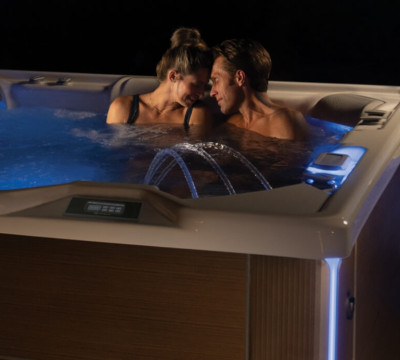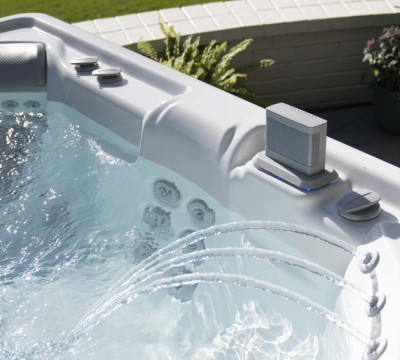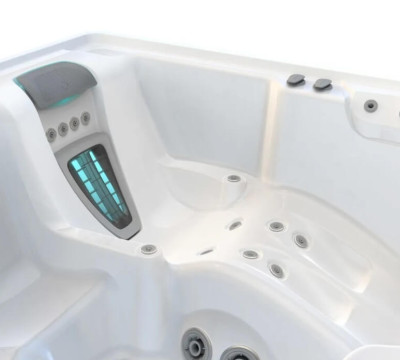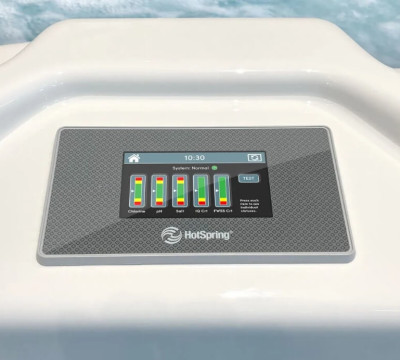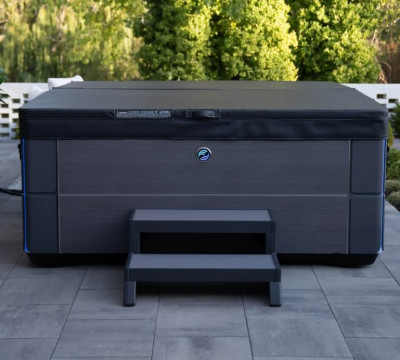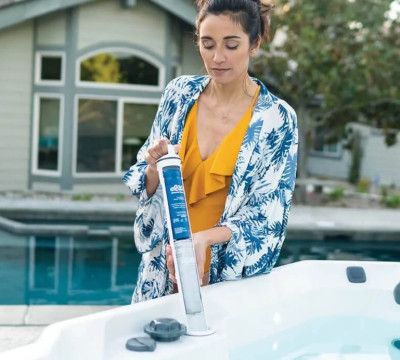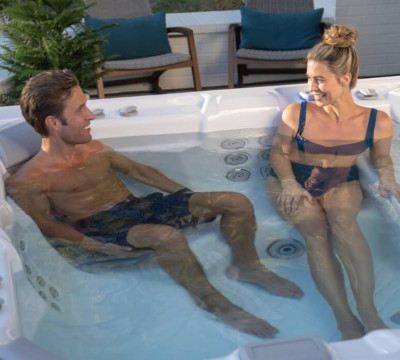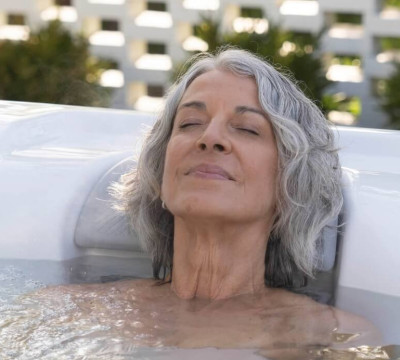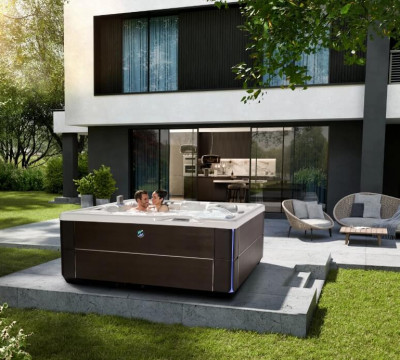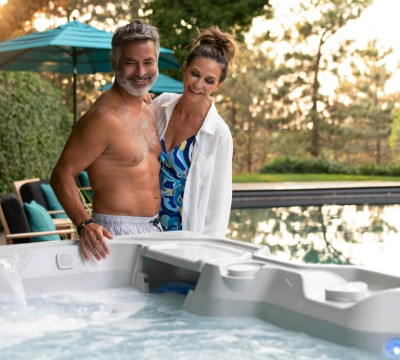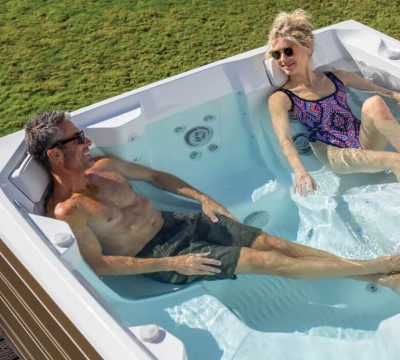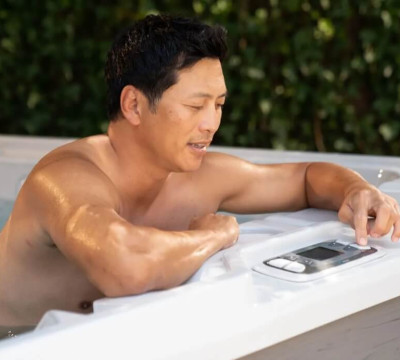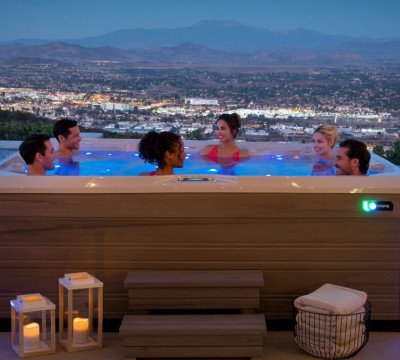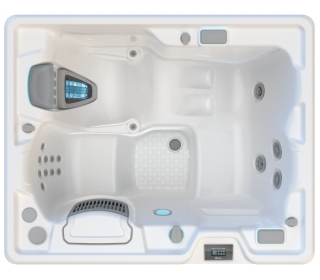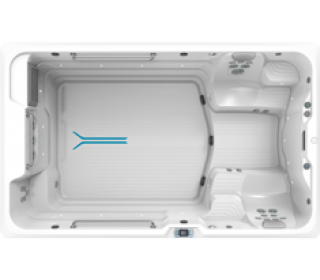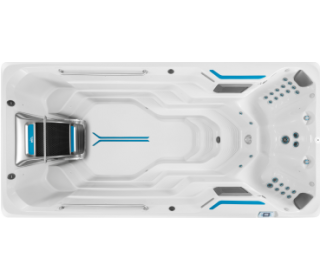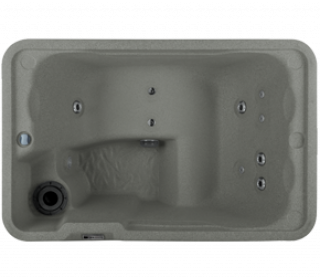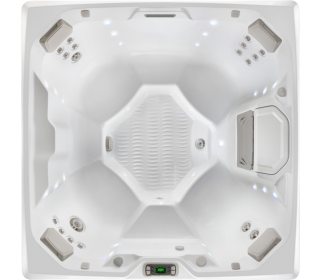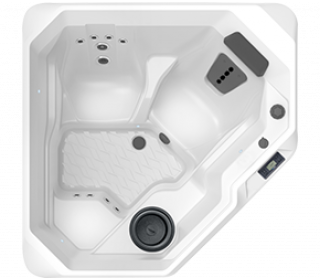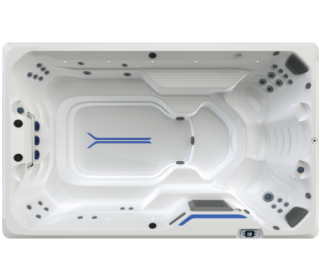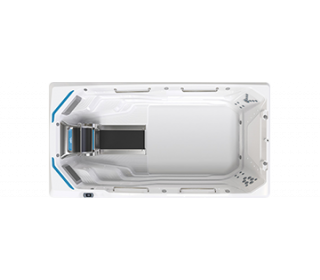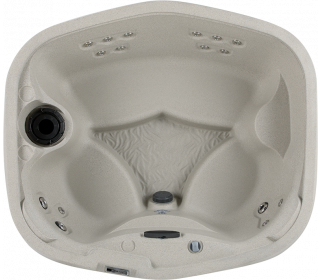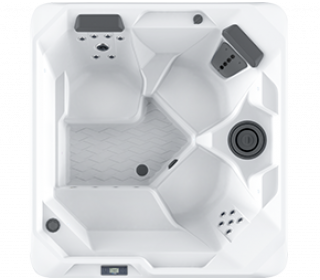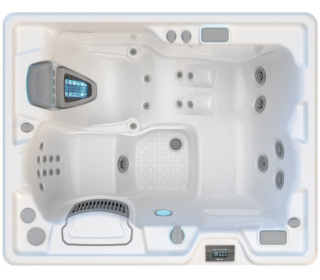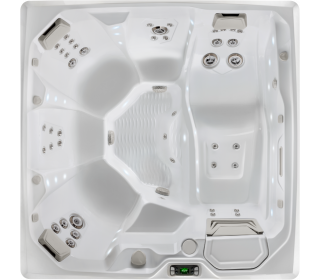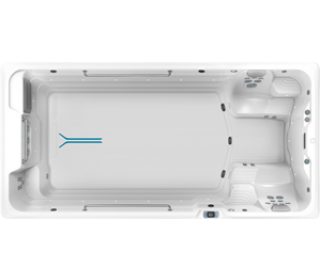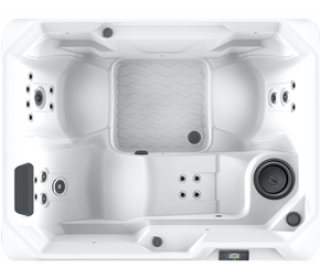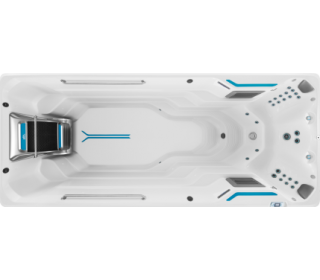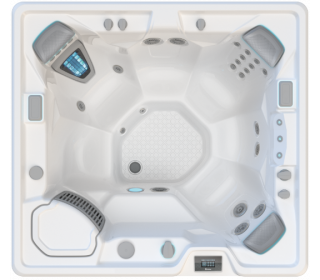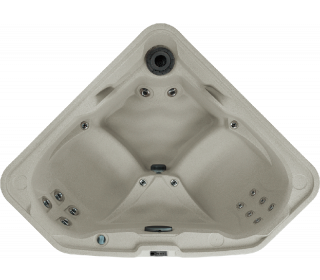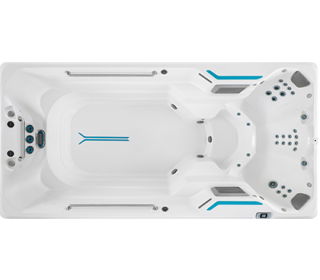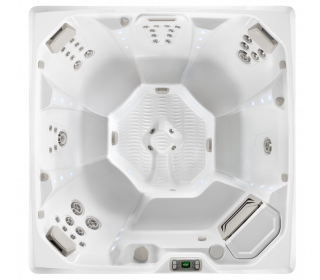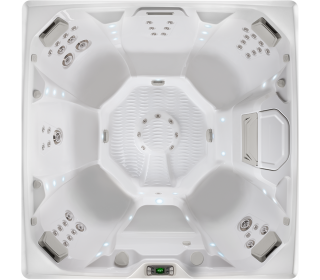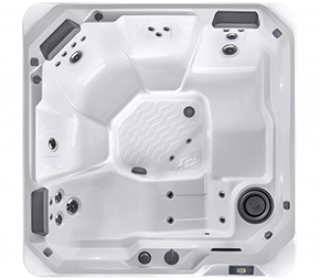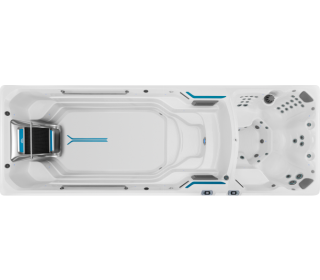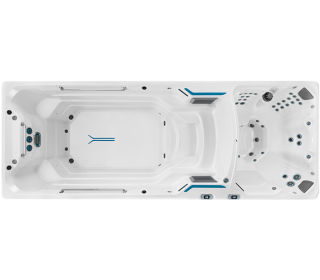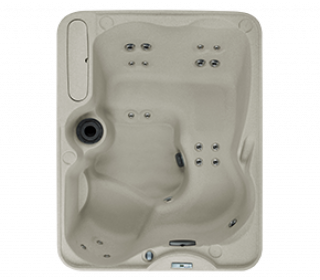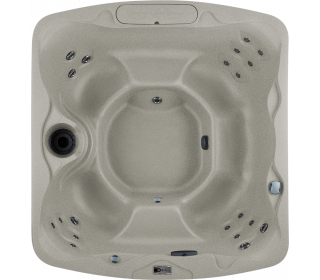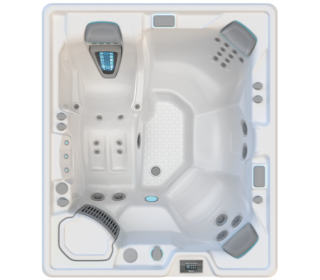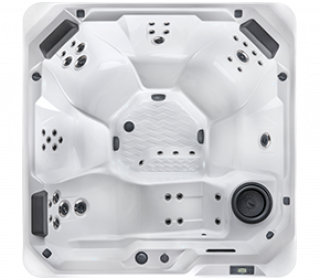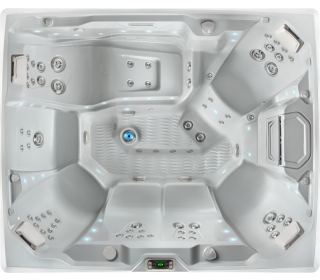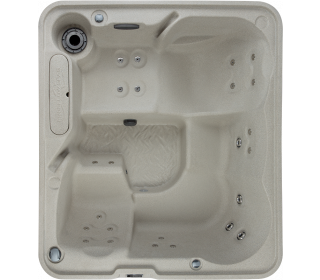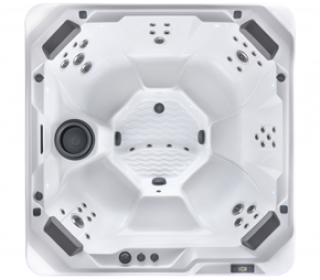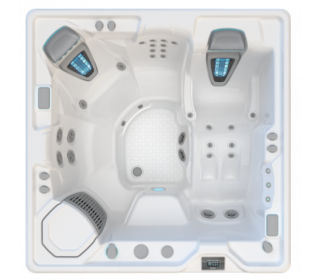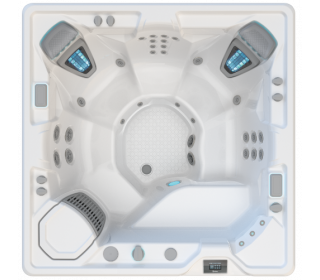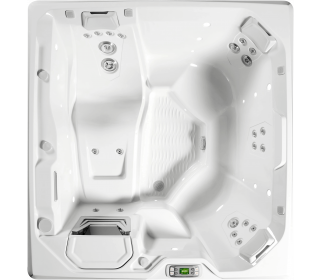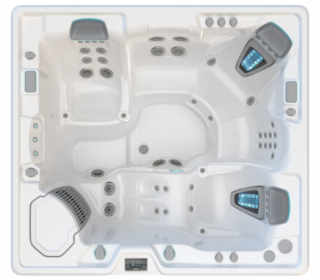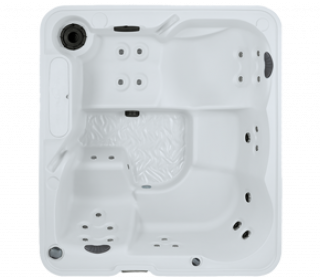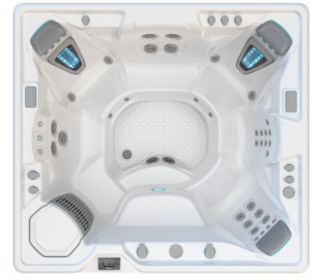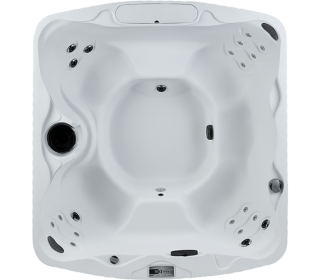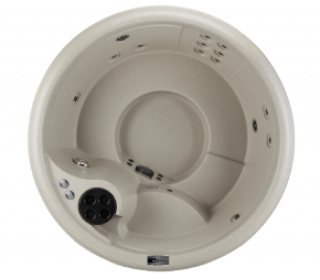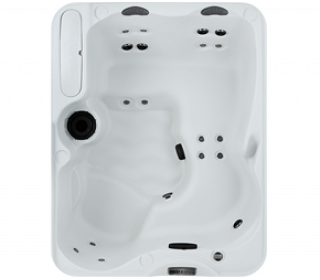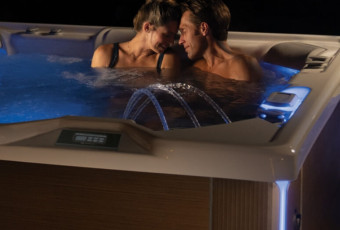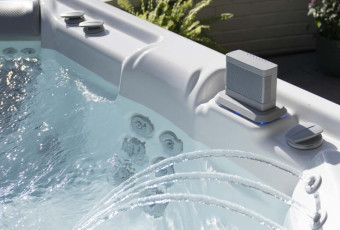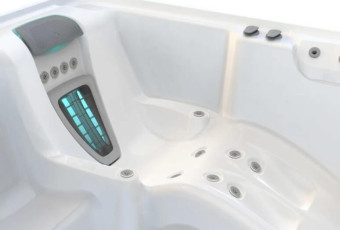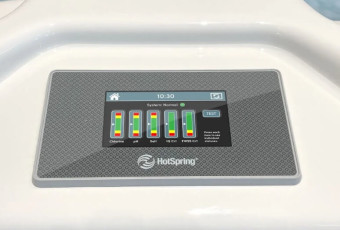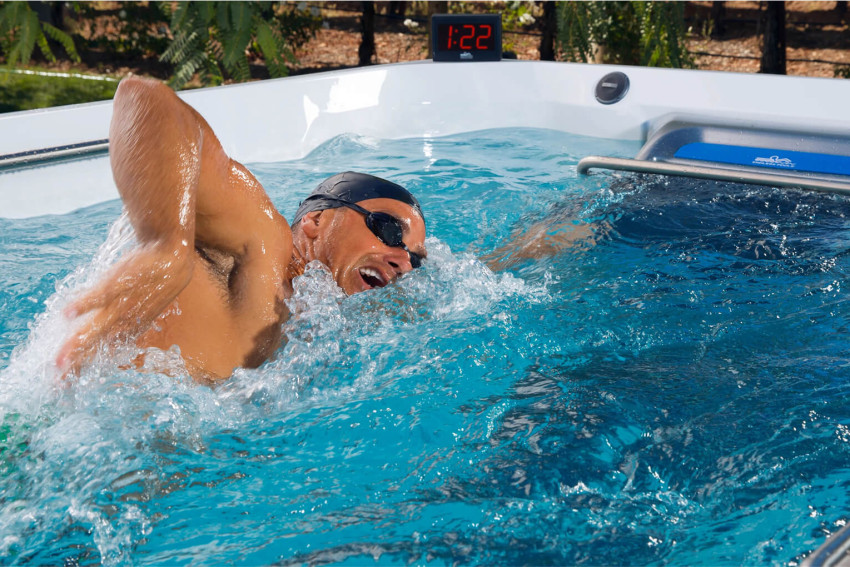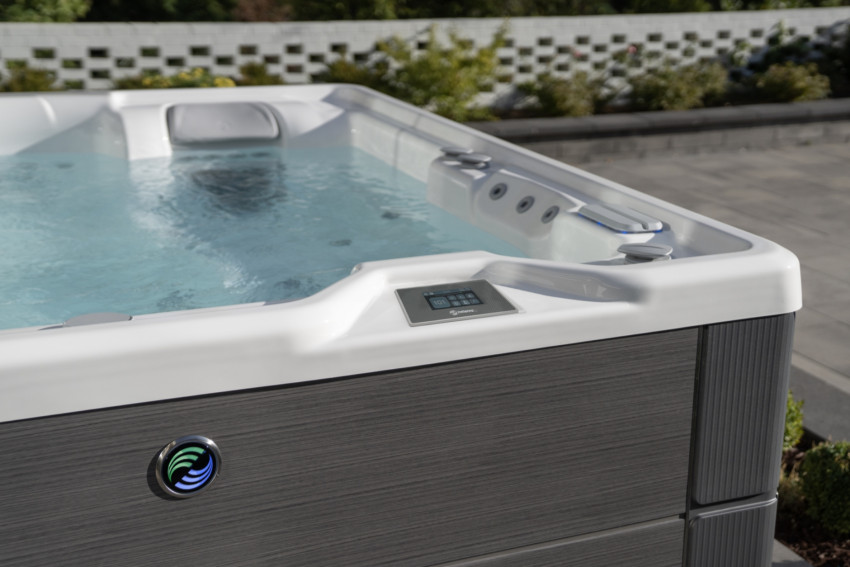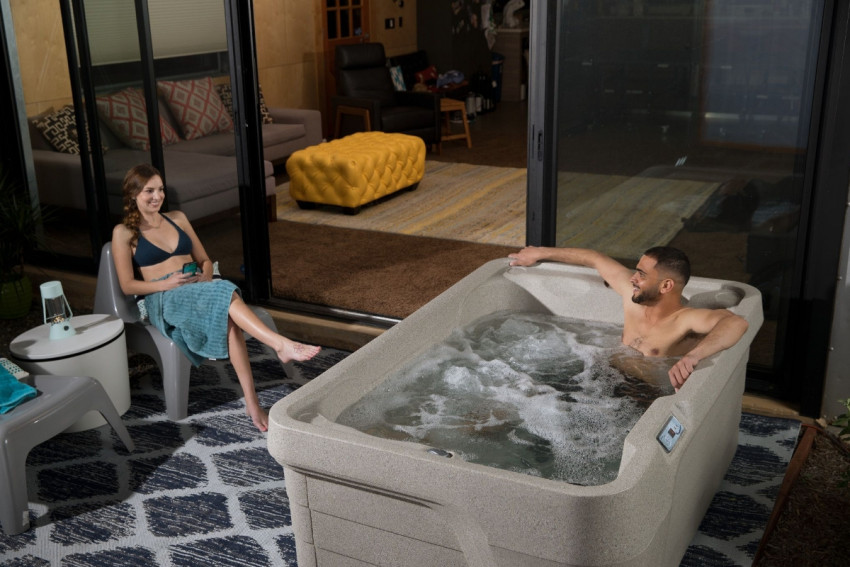Swimming and aquacise are increasingly popular forms of fitness, and for good reason. With buoyancy counteracting the effects of gravity, water-based exercise is less impactful while offering all the cardiovascular intensity of a traditional workout. To enjoy these benefits at home you’ll need a suitable patch of water, and one option comes in the form of a lap pool. But how big should your lap pool be?
The ideal lap pool is one that allows for a decent amount of strokes before you’re forced to turn around. The longer the lap pool the fewer tumble turns you’ll need to do and the more enjoyable the swim will be. A good lap pool will therefore be at least 10m long, and ideally closer to 15m.
There is another swimming pool option, however. It measures just 3.7m-6.1m long, but you’ll never reach the end of it. An Endless Pools swim spa generates its own current for you to swim against, which can be adjusted to your preferred speed. These machines demand less space, less money, and offer a far superior swim.
Let’s take a closer look at lap pools: what they are, how they work, their ideal size, and how they compare to other aquacise options.

What is a lap pool?
A lap pool is a long, narrow pool, usually measuring 10-15m long, 2-3m wide and about 1.2m deep, designed exclusively for fitness, rather than for relaxation or socialising. Lap pools can be installed at the back, the side, or even within the home; the position is usually driven by wherever the necessary space can be found.
Because lap pools are such large and costly installations, they are seen as a sign of opulence, and are often installed as much for their form as for their function. Their size means that they can be labour-intensive to clean and maintain, although most lap pool owners have the means to outsource these tasks.
If reasons of space, cost or upkeep are preventing you from investing in a lap pool, an Endless Pools swim spa offers a compact, cost-effective and low maintenance alternative, all while providing an enhanced swimming experience!
What is an average spa pool size?
Spa pools can be measured in three main ways: footprint, volume or seat count. At Hot Spring our spa pools range from the two-seat, 2.18m², 450L Mini, to the seven-seat, 6.5m², 1900L Prism. The ‘average’ spa sits halfway between those numbers, like in the four-seat, 4m², 1175L Beam.
For those looking for even more room than the largest spa pools can offer, you might consider moving up to a swim spa. In terms of swim spa sizes, footprints vary:
- Small swim spas: 8-10m²Small swim spas: 8-10m²
- Medium swim spas: 10-12m²
- Large swim spas: 12-14m²
What is the best length home lap pool?
The best length lap pool for your home is the longest lap pool you can fit and afford. The reality is that the experience of swimming in a lap pool is lowered whenever you reach each end, as turning around disrupts the rhythm of your stroke. It’s why Olympic swimming pools are 50m long: it allows athletes to showcase their swimming talents with fewer disruptions.
Unfortunately not many of us have a 50m long space to spare in our backyards, which is why most lap pools are 10-15m in length – a distance that lets you get a good amount of strokes in before you hit the end.
Fortunately there is another way: the hydraulic propulsion system found in an Endless Pools swim spa generates a consistent, low turbulence current that grants you a unique swim-in-place experience. Despite measuring just a few metres long, these machines are tumble turn-free zones. Close your eyes and you’ll feel like you’re enjoying an open water swim!
Why choose a swim spa over a lap pool?
In recent years the lap pool has found itself in competition with a new type of machine: the swim spa. But why are more and more Kiwis moving away from lap pools, and into swim spas?
- Space: The longer the lap pool the better, but most properties aren’t blessed with that much spare space. Endless Pools swim spas, meanwhile, offer a swim-in-place experience that essentially makes the machine infinitely long, when in reality it measures just a handful of metres.
- Cost: Big, bespoke and difficult to install, lap pools tend to be far more expensive than compact, portable and self-contained swim spas.
- Capability: Lap pools are for swimming laps. Endless Pools swim spas, meanwhile, are your personal trainer, masseuse team and party host rolled into one!
- Work: Lap pools are far more complex and time-consuming to install and maintain versus an Endless Pools swim spa, which can be put in place, filled and powered, and features a wealth of automated water care technology.

To assist with the professional design of your spa pool, we have provided spa specification renderings in both 3D PDF and CAD format. These files can assist you with the design and layout of your new spa pool. The PDF files can be automatically downloaded whilst the CAD files will require access to AutoCAD software for professional use by your architect, draftsman or builder.
Do note all images are for reference only and users are notified to build via the actual spa specifications. Please note that manufacturing tolerances are not represented in the portable spa renderings.


